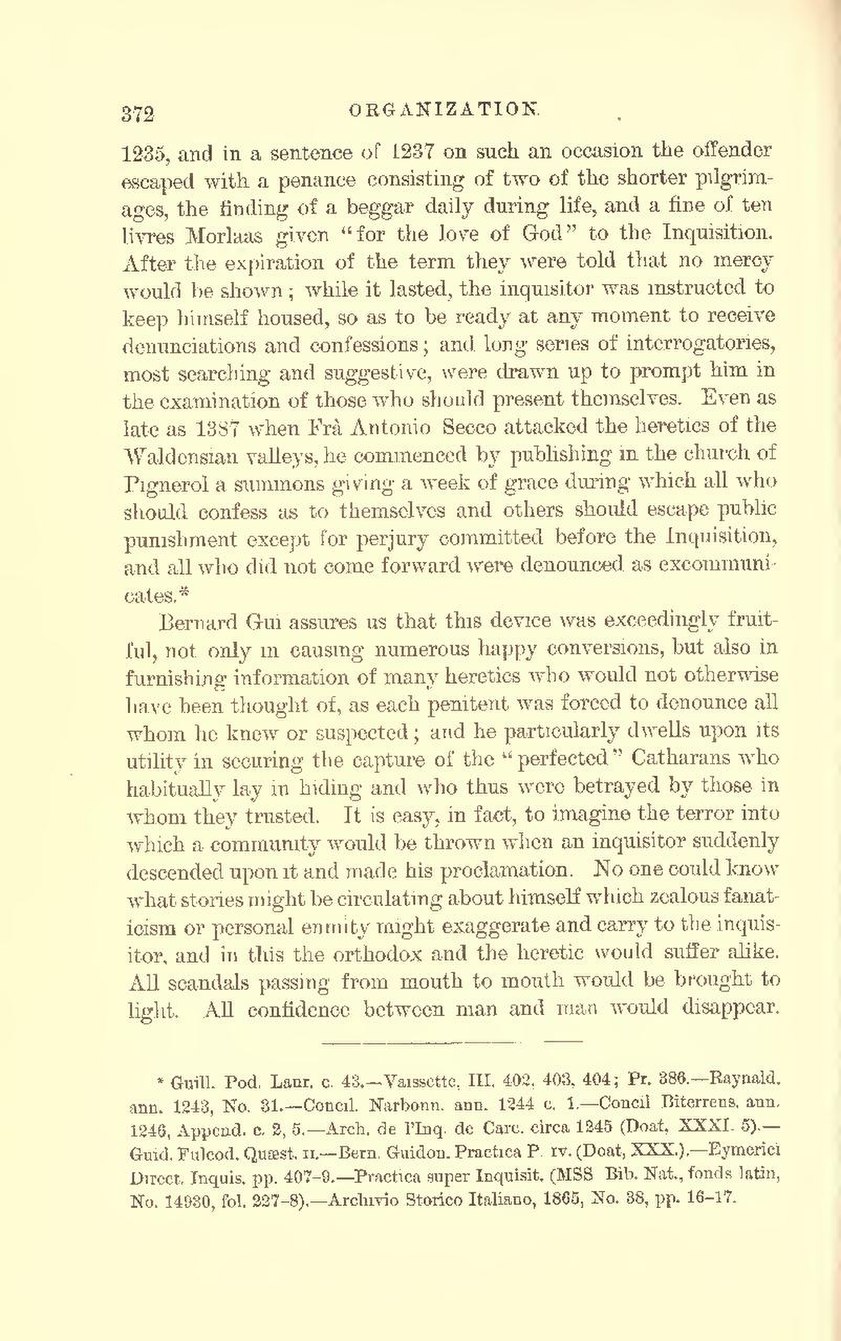1235, and in a sentence of 1237 on such an occasion the offender escaped with a penance consisting of two of the shorter pilgrimages, the finding of a beggar daily during life, and a fine of ten livres Morlaas given "for the love of God" to the Inquisition. After the expiration of the term they were told that no mercy would be shown; while it lasted, the inquisitor was instructed to keep himself housed, so as to be ready at any moment to receive denunciations and confessions; and long series of interrogatories, most searching and suggestive, were drawn up to prompt him in the examination of those who should present themselves. Even as late as 1387 when Fra Antonio Secco attacked the heretics of the Waldensian valleys, he commenced by publishing in the church of Pignerol a summons giving a week of grace during which all who should confess as to themselves and others should escape public punishment except for perjury committed before the Inquisition, and all who did not come forward were denounced as excommunicates.[1]
Bernard Gui assures us that this device was exceedingly fruitful, not only m causing numerous happy conversions, but also in furnishing information of many heretics who would not otherwise have been thought of, as each penitent was forced to denounce all whom he knew or suspected; and he particularly dwells upon its utility m securing the capture of the "perfected" Catharans who habitually lay in hiding and who thus were betrayed by those in whom they trusted. It is easy, in fact, to imagine the terror into which a community would be thrown when an inquisitor suddenly descended upon it and made his proclamation. No one could know what stories might be circulating about himself which zealous fanaticism or personal enmity might exaggerate and carry to the inquisitor, and in this the orthodox and the heretic would suffer alike. All scandals passing from mouth to mouth would be brought to light. All confidence between man and man would disappear.
- ↑ Guill. Pod. Laur. c. 43.-^Vaissette, III. 402, 403, 404 ; Pr. 386.— Raynald. ann. 1243, No, 31. — Concil. Narbonn. ann. 1244 c. 1. — Concil Biterrens. ann. 1246, Append, c. 2, 5.— Arch, de I'lnq. de Care, circa 1245 (Doat, XXXI. 5).— Guid. Fulcod. Qusest. ii. — Bern. Guidon. Practica P. iv. (Doat, XXX.). — Eymerici Direct. Inquis. pp. 407-9.— Practica super Inquisit. (MSS Bib. Nat., fonds latin, No. 14930, fol. 227-8).— Archivio Storico Italiano, 1865, No. 38, pp. 16-17.
